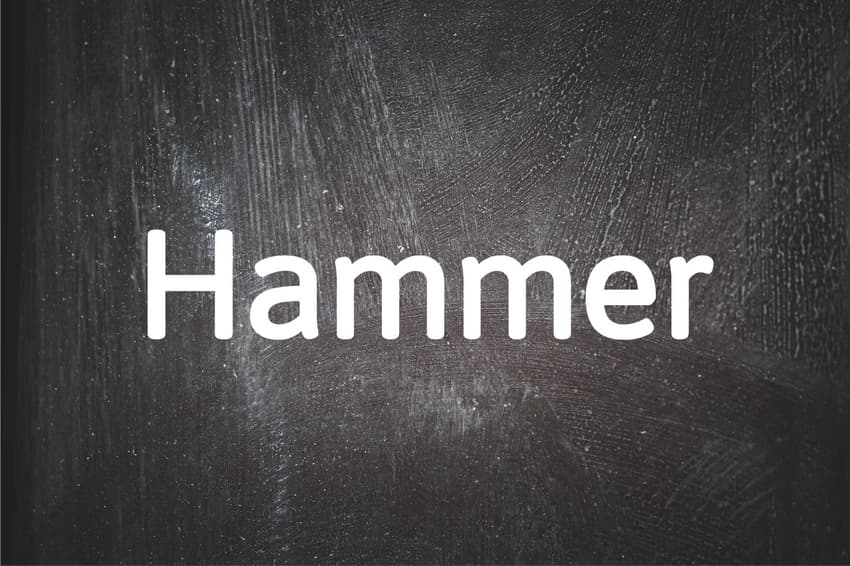German word of the day: Hammer

Want to sound like a true native? Today’s word of the day will help you nail German slang.
To English speakers, a hammer is nothing more than a useful household tool. For Germans, however, “Hammer” actually doubles as an incredibly popular colloquial term.
It is a very common way of expressing surprise or disbelief toward something extraordinary, whether that be positive or negative.
This word can be heard in a huge variety of contexts and you may well be surprised at just how flexibly it is slotted into everyday speech.
It can be used as a noun:
“Das ist (ja) der Hammer”
This is awesome!
As an adjective:
“Ich habe hammer Bauchschmerzen”
I have an awful stomach pains.
Or even as a way of intensifying another adjective:
“Das sieht hammercool aus!”
That looks super cool!
The tweet below shows someone describing Austria's warm spell at the beginning of September as "hammer Wetter".
Österreich bis morgen
Hammerrrrr Wetter
Love it pic.twitter.com/7CBEbMy1UD
— M.B (@MelanieBerress1) September 2, 2023
It is such a widespread term that it can even be spotted in popular culture.
Stores will often try to lure you in with a “Hammer-Angebot” (super deal/offer), or football commentators may speak of a “Hammer-Start” (great start) to the season for a certain team.
On the more negative side, you may see newspapers report of a “Hammer-Bußgeld” (huge fine) being issued to someone breaking the rules. It is most often used as a way of making something stand out, whether that be for good or bad reasons.
So, next time you go to an amazing concert, discover a delicious new dish, or experience a stroke of bad luck, be sure to take this word out of your linguistic toolbox!
Comments
See Also
To English speakers, a hammer is nothing more than a useful household tool. For Germans, however, “Hammer” actually doubles as an incredibly popular colloquial term.
It is a very common way of expressing surprise or disbelief toward something extraordinary, whether that be positive or negative.
This word can be heard in a huge variety of contexts and you may well be surprised at just how flexibly it is slotted into everyday speech.
It can be used as a noun:
“Das ist (ja) der Hammer”
This is awesome!
As an adjective:
“Ich habe hammer Bauchschmerzen”
I have an awful stomach pains.
Or even as a way of intensifying another adjective:
“Das sieht hammercool aus!”
That looks super cool!
The tweet below shows someone describing Austria's warm spell at the beginning of September as "hammer Wetter".
Österreich bis morgen
— M.B (@MelanieBerress1) September 2, 2023
Hammerrrrr Wetter
Love it pic.twitter.com/7CBEbMy1UD
It is such a widespread term that it can even be spotted in popular culture.
Stores will often try to lure you in with a “Hammer-Angebot” (super deal/offer), or football commentators may speak of a “Hammer-Start” (great start) to the season for a certain team.
On the more negative side, you may see newspapers report of a “Hammer-Bußgeld” (huge fine) being issued to someone breaking the rules. It is most often used as a way of making something stand out, whether that be for good or bad reasons.
So, next time you go to an amazing concert, discover a delicious new dish, or experience a stroke of bad luck, be sure to take this word out of your linguistic toolbox!
Join the conversation in our comments section below. Share your own views and experience and if you have a question or suggestion for our journalists then email us at [email protected].
Please keep comments civil, constructive and on topic – and make sure to read our terms of use before getting involved.
Please log in here to leave a comment.